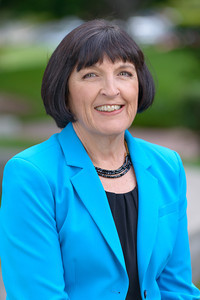A 70-year-old woman answers the phone and hears, “Grandma, this is your grandson Joe. I’m in jail and need you to send some money so I can get out. You can’t tell my parents, but I need the money quickly.”
A 65-year-old man answers the phone and hears, “This is Agent Smith with the IRS. You owe $2,000 in taxes and if you don’t send it to us, we are going to take you to court and put you in jail.”
A neighbor is talking to an 80-year-old widow who says, “All of the sudden my oldest son started showing up and trying to be involved in my life. He has always had an addiction and gambling problem, which has kept him away from the rest of the family for almost 25 years. I wonder why he is trying to develop a relationship now?”
A daughter visits her aging father in a care facility and notices bruises on his arms. When she asks what happens, he is dismissive and changes the subject.
What do all of these scenarios have in common? They are all forms or signs of physical or financial elder abuse, which is a growing problem facing our aging seniors.
Older adults are most susceptible to being scammed because they are the age group most targeted. Unfortunately, some members of the senior community are targeted because they may live alone, depend on others for their care, have impaired memory and hearing, or have physical limitations that make them more susceptible to the techniques used by professional scam artists or even family members.
Trust is often a key element in scams and seniors have been found to be more trusting of others compared to younger generations, as well as being less familiar with using technology and the internet where scammers can easily masquerade as a trusted source. One study estimates that 1 out of every 10 people age 60 or older who lives at home will experience elder abuse in some form. Most experts believe this is likely underestimated because many victims are unable or afraid to disclose the abuse, or too embarrassed to report the abuse. In fact, another study estimated that only 1 in 44 elder financial abuse cases is ever reported to law enforcement!
Elder abuse comes in many forms and may include physical, emotional, or sexual abuse, or exploitation, neglect or abandonment. Although there are distinct types of abuse, it is not uncommon for an elder to experience more than one type of mistreatment at various times.
Who are the abusers?
Abusers can be men or women, of any race or financial status. Most cases of elder abuse are perpetrated by known and trusted individuals. According to the County of San Diego’s Health and Human Services Agency brochure “Don’t Get Hooked”, the most likely perpetrators are:
- Caregivers and persons in a position of trust who use fear or guilt to take advantage of a senior.
- Family members with a criminal history, and/or a history of drug abuse, addiction, gambling issues, or unemployment.
- Strangers preying on older people who may be isolated, confused or desperate for attention.
How can you help protect yourself or seniors in your life from elder abuse?
- Educate yourself by reading one of the following resources about elder abuse:
- National Center of Elder Abuse at https://www.ncea.aoa.gov/ (part of the Department of Health and Human Services)
- Obtain the “Don’t Get Hooked” booklet put out by the County of San Diego Health and Human Services Agency (CCMI has a limited number of these if you would like us to send you one).
- There is a tip sheet provided by the San Diego District Attorney’s office available at https://www.sdcda.org/helping/tentips.pdf.
- Regularly change your online passwords (every 3 to 6 months) and always change your password if your computer has a virus.
- Stay involved and do not isolate yourself.
- Sign up for the Do Not Call list at 888-382-1222 and the Opt Out Mailing list at 888-567-8688.
- Have benefit checks directly deposited into your bank account.
- Review your credit history at least once a year, if not more frequently.
- Never give your sensitive financial information or personal information over the phone unless you initiated the call to a known business.
- Be skeptical of unsolicited offers.
- Use credit cards instead of debit cards (credit cards offer more protection when fraud occurs).
- If you can no longer keep track of your finances, ask a trusted family member or hire a licensed private fiduciary to handle your financial affairs.
- Be aware who is helping in your home and the difference between bonded and licensed health care professionals vs. home care professionals that may not have the same qualifications.
- If you know of or suspect elder abuse, report it to the correct authorities!
- You can also call directly the San Diego Distrist Attorney’s office (619.531.3464) and ask for Paul Greenwood, Deputy District Attorney San Diego District Attorney’s Office, Head of Elder Abuse Prosecution, or email him at greewood@sdcda.org.
- You or a family member can also reach out to Adult Protective Services: 1-800-510-2020.
By educating yourself, you can help protect some of our most vulnerable seniors and make sure the Greatest Generation and Baby Boomers receive the respect and protection they deserve.
Links:
National Center of Elder Abuse: https://www.ncea.aoa.gov/index.aspx
A Citizen’s Guide to Preventing and Reporting Elder Abuse: https://ag.ca.gov/bmfea/pdfs/citizens_guide.pdf
San Diego Health and Human Services Aging & Independence Services: https://www.sandiego.networkofcare.org/aging/
CCMI provides personalized fee-only financial planning and investment management services to business owners, professionals, individuals and families in San Diego and throughout the country. CCMI has a team of CERTIFIED FINANCIAL PLANNERTM professionals who act as fiduciaries, which means our clients’ interests always come first.
How can we help you?





